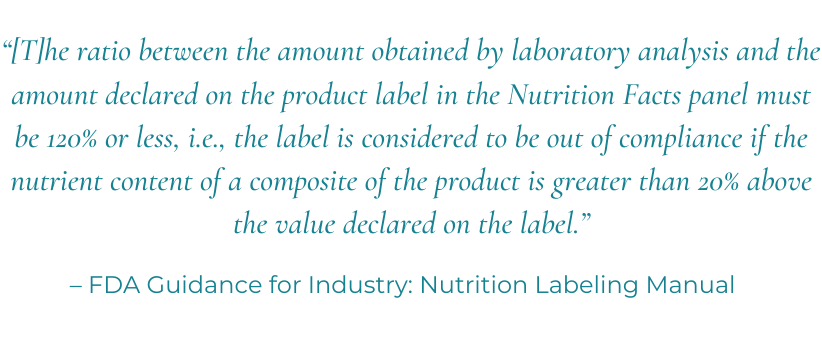8 Reasons You Shouldn’t Count Calories
I have a confession to make: In a futile attempt to lose weight, I counted calories throughout college and my early adult life. My goal was to stay at or below a certain number. When I exceeded that number it was a bad day. But when I reached the end of a day without going over – it was a good day!
And whether I was hungry or not I celebrated by eating more calories until I reached my threshold.
Counting calories is frustrating (and everyone said “amen”). But it gives us the illusion we’re accomplishing something. Because the famous lie of health & nutrition is “If it’s frustrating, complicated, and tastes bad, it must be working!”
Counting calories doesn’t work
But in reality, counting calories just gives us an unhealthy fixation with food. Have you ever met someone who counts calories? All they talk about or think about is the number on the side of the package. I can say that because I used to be that person.
There are countless diet tricks under the sun – and some even provide short term results. But as one calorie-reduction study identified, of those who lose 10% of their weight, only 20% will maintain this loss for at least a year (Wing & Phelan, 2005).
8 reasons you shouldn’t count calories
The more you pay attention to calories, the less attention you give to the actual food. Instead of food, you begin to see numbers. Instead of an apple, you see 95 calories.
Counting calories is a hard habit to break. So to help, I’m going to give you 8 reasons not to count calories. But I won’t leave you there. I’m also going to share 9 things to do instead of counting calories.
1. You won’t listen to your body
When I counted calories I would eat according to the number of calories I had left instead of how my body felt. If I was hungry but didn’t have enough calories to eat, I’d force myself to endure. But if I ended up with calories to spare at night, I’d grab a snack while watching TV.
Instead of listening to my own body, I was listening to what someone else was telling me.
2. Calories aren’t an exact science
If you’re a current calorie counter your mind is about to be blown: The U.S. Food and Drug Administration allows a 20% margin of error on the nutrition facts panel. Your 500 calorie microwave dinner could contain as much as 600 calories.
“[T]he ratio between the amount obtained by laboratory analysis and the amount declared on the product label in the Nutrition Facts panel must be 120% or less, i.e., the label is considered to be out of compliance if the nutrient content of a composite of the product is greater than 20% above the value declared on the label.” – FDA Guidance for Industry: Nutrition Labeling Manual
In addition to the tricky work of calorie analysis, it’s not just the quantity of calories – it’s the quality as well. Simply stated, your body processes different calories differently.
You’ve heard it said, “a calorie is a calorie.” Well, that’s not completely true. Your body processes 500 calories of vegetables completely different than 500 calories of processed junk.
Calorie counting leads us to believe that all calories are created equal. But this way of thinking fails to take into account how the composition of those calories affects your body. Everything from your blood sugar levels to your insulin levels to your digestion, hunger hormones, and future cravings are impacted by the type of calories you consume.
3. It gives you a restrictive diet mentality
Calorie counting makes food out to be the enemy, something you should either avoid or limit.
“Restriction leads to feelings of deprivation, which leads to feelings of desperation, which leads to binges or obsessive thoughts or cravings, which leads to feelings of guilt or shame, followed by more restriction and over and over,” said Alissa Rumsey, a registered dietitian, and intuitive eating coach. “This is completely normal and not caused by a lack of self-control or willpower — it’s because your body is sensing that restriction.”
4. You neglect hunger cues
Focussing on a daily calorie goal causes you to overlook your body’s cues like hunger, fullness, and satisfaction.
Your body was designed to know how much it needs each day. Depending on the day and your level of activity you may need more or less.
5. You fixate on a number rather than nutrition
You’ll end up excluding many nutrient-dense foods from your diet just because they’re higher in calories. For example, one avocado contains 234 calories. That doesn’t sit well if you’re counting calories.
Instead, you’ll opt for something with fewer calories and less nutritional value like a pack of crackers to help you stay within your calorie limit.
6. You develop an obsession with food
Diets lead to an obsession with food. Has anyone ever told you not to think about a pink elephant? What happens?
You think about a pink elephant. No matter how much you try to block the idea from your mind, it’s all you can think about.
It’s the same with calorie counting. Counting calories and any other diet leads to an obsession with food. As a result, many develop eating disorders and experience increased anxiety and depression.
7. You restrict healthy foods
Calorie counting causes you to focus on one thing: the number of calories.
You’ll naturally restrict high-calorie nutrient-dense foods. A medium banana has 105 calories. If you’re counting calories, the 100-calorie snack pack means you get to save a handful of calories.
But nuts, seeds, fruits, and vegetables provide crucial nutrients your body needs, unlike the empty calories you get from processed low-calorie snacks.
8. It’s not sustainable
I’ll admit: restricting calories may help you lose weight in the short term. However, researchers found that more than 80% of lost weight was regained after five years in an analysis of 29 long-term weight loss studies.
You can have all the willpower in the world. But your body has internal weight loss prevention mechanisms that prevent long term results. Calorie counting doesn’t provide a solution to this.
9 things to do instead of counting calories
1. Consider how it makes you feel
Is it satisfying? Enjoyable to eat? Does it keep you full until lunch or does it leave you wanting a snack after an hour? You should consider how the food makes you feel after eating it.
2. Tune in to what your body actually wants
The diet culture has taught us to rely on external cues like strict diet rules. But it’s important to become aware of your body’s signals: knowing what to eat and when.
3. Identify habits
Both good and bad, habits affect the way we eat. Do you watch television before going to bed? If so, is it accompanied by a snack? Do you often go out for drinks with friends? If so, what do you eat and how much? And what happens when you’re stressed? Do you tend to eat your feelings?
Simply identifying these habits will help you avoid gaining extra weight because of them.
4. Eat more plants and whole foods
Fill up on foods containing fiber, healthy fats, and phytonutrients. These include fruits, vegetables, nuts, beans, and minimally processed whole grains.
Consider eating animal-based foods in moderation.
5. Eat fewer processed foods
Highly processed foods like chips, candy, and packaged snacks should be consumed in moderation. To help, only buy them in individual size or just enough for certain events so you don’t have the temptation in your house.
6. Cook at home as often as possible
Studies show that cooking at home is associated with better overall health. Restaurant meals are often served in excessively large portions. Not to mention, they’re often high in sugar, sodium, and fat.
But at home, you decide how much of each ingredient you use and how much food is on your plate.
7. Be mindful – focus on the meal in front of you
Mindful eating helps you recognize your emotions and physical sensations while eating. Here are a few practical tips for being more mindful while eating:
Put your full attention on the meal in front of you (i.e. step away from your TV or computer).
Notice the sensations in my body before, during, and after eating.
Sit down when you eat.
Chew every bite before taking another.
Savor the flavors, texture, and saltiness or sweetness of the food.
8. Focus on balance and a sustainable lifestyle
You won’t hear this from many nutritionists. But sometimes you should eat foods purely for the pleasure of eating them, even when they are not “healthy.” That may sound counter-intuitive. But a sustainable way of eating must make room for treats. As long as it’s balanced, give yourself permission to enjoy your favorite dessert or treat from time-to-time.
9. Take control and gain confidence
I’d be remiss if I didn’t invite you to jump on a free discovery call. I help women who are tired of diets and feel stuck take control and gain confidence by creating healthy habits that are sustainable. And I’d love to invite you to set up a time that works for you so we can uncover some ways to help you do just that: go from stuck to thriving!
Click here to schedule a time that works best for your schedule!
Stop counting calories!
Bottom line: counting calories doesn’t work. But the good news is that there are solutions that do work. They’re a lot more enjoyable too, plus these seven alternatives to calorie counting provide lasting results.








